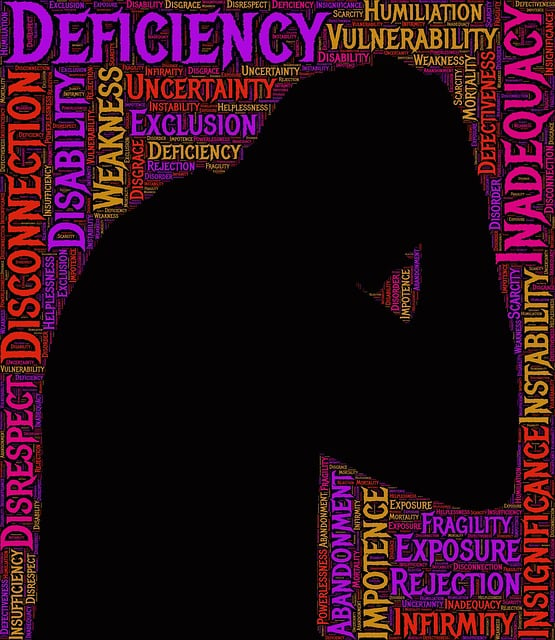Community outreach programs in Denver are revolutionizing mental health care by providing tailored support for diverse populations, focusing on adjustment disorders. These initiatives bridge access to Denver Adjustment Disorder Therapy (DAT), offering tools for emotional regulation and confidence-boosting. By empowering at-risk youth with proactive strategies like mindfulness workshops and burnout prevention, these programs foster trust and encourage early intervention. Long-term success of DAT is crucial, with evaluations measuring well-being, social integration, employment rates, and healthcare interactions over time. Feedback from participants and professionals through surveys and interviews provides valuable insights for best practices in burnout prevention and risk management.
Community outreach programs play a pivotal role in enhancing mental health services, especially for at-risk youth struggling with adjustment disorders. This article explores the implementation and impact of such initiatives in Denver, focusing on strategies that engage young individuals effectively. We delve into understanding the benefits of community outreach, its successful execution through tailored programs, and measuring long-term outcomes, particularly in relation to Denver Adjustment Disorder Therapy.
- Understanding Community Outreach Programs: Their Role and Benefits for Denver's Mental Health Services
- Implementing Effective Outreach Strategies: Engaging at-risk Youth with Adjustment Disorder
- Measuring Success and Long-term Impact: Evaluating the Effectiveness of Denver Adjustment Disorder Therapy Programs in the Community
Understanding Community Outreach Programs: Their Role and Benefits for Denver's Mental Health Services

Community outreach programs play a pivotal role in enhancing mental health services in cities like Denver. These initiatives aim to bridge the gap between professional therapy and individuals who may face barriers to accessing care, such as those struggling with Denver Adjustment Disorder Therapy. By bringing mental health resources directly to communities, outreach programs ensure that support is accessible and tailored to local needs.
In Denver, where diverse populations may have varying cultural or socio-economic backgrounds influencing their approach to mental well-being, community outreach can be a game-changer. Programs focusing on emotional regulation, confidence boosting, and mind over matter principles empower individuals with the tools to manage their mental health proactively. This proactive approach not only benefits those directly involved but also contributes to a more resilient and supportive community overall.
Implementing Effective Outreach Strategies: Engaging at-risk Youth with Adjustment Disorder

Implementing effective community outreach programs is crucial when addressing challenges faced by at-risk youth, many of whom struggle with adjustment disorders. These disorders can stem from various factors, including trauma or significant life changes, and often go undiagnosed or untreated in young individuals. By reaching out to these youth proactively, mental health professionals in Denver can play a pivotal role in early intervention and long-term support.
Strategic initiatives such as mindfulness meditation workshops and burnout prevention strategies for healthcare providers can be tailored to engage this demographic effectively. Incorporating interactive activities that cater to their unique needs, like group discussions or creative expression therapies, can foster trust and encourage participation. Moreover, risk management planning for mental health professionals is essential to ensure the safety of both practitioners and clients during these outreach endeavors, creating a supportive environment where at-risk youth feel empowered to seek help for their adjustment disorder symptoms.
Measuring Success and Long-term Impact: Evaluating the Effectiveness of Denver Adjustment Disorder Therapy Programs in the Community

Measuring the success and long-term impact of Denver Adjustment Disorder Therapy (DAT) programs is paramount to understanding their effectiveness within the community. Beyond immediate outcomes, such as improved symptom management and enhanced coping mechanisms, these evaluations should explore how DAT influences participants’ overall well-being and social integration over time. By implementing robust assessment tools that capture changes in mental health status, interpersonal relationships, and access to future care, researchers can gain valuable insights into DAT’s enduring benefits.
This process involves comparing pre- and post-program data, as well as longitudinal follow-ups, to identify trends and persistencies. For instance, tracking participants’ engagement in social activities, employment rates, and interactions with healthcare systems after completion of DAT programs can reveal whether these initiatives foster sustainable change. Integrating feedback from both participants and mental health professionals through surveys and interviews further enriches the evaluation by capturing nuances and practical implications, aligning with Burnout Prevention Strategies for Healthcare Providers, Social Skills Training, and Risk Management Planning for Mental Health Professionals.
Community outreach programs, particularly those focusing on Denver Adjustment Disorder Therapy, have proven to be powerful tools for enhancing mental health services. By implementing targeted strategies that engage at-risk youth, these initiatives not only provide immediate support but also foster long-term resilience. The success of these programs is evident in their ability to improve outcomes and create a more inclusive, supportive community environment for all Denvers. Continued investment in community outreach ensures that resources are effectively utilized, ultimately leading to better mental health outcomes for those who need it most.










